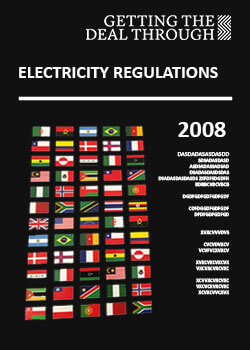One step closer to Energy Transition in Colombia

The Colombian Senate has passed Bill 365 of 2020 establishing new mechanisms and goals for energy transition in the country and aiming at a safe way to transition from traditional energy sources to the use of renewable resources.
The three main pillars of Law 365 of 2020 are:
- The transition from conventional to non-conventional sources as an important element in the fight against climate change.
- The revitalization of the Colombian energy market, known as the transformation process from years of using fossil fuels and non-renewable sources to the implementation of new sources of energy; and
- The economic reactivation needed due to the recession caused by the Covid-19 pandemic.
Nowadays, the sustainable energy consumed in Colombia is less than 1% of the total production.
The purpose of the new Bill is to increase the consumption of sustainable sources of energy by different sectors of the economy by 2022, with the goal of reducing atmospheric CO2 by 51% thus reducing the greenhouse gases effect. This bill fosters the use of non-conventional energy sources as green nor blue hydrogen, and carbon capture and storage, including geothermal generation.
Other important points that are clearly introduced in the bill are:
- Strengthening the special fund for non-conventional energy and efficient management of energy (FENOGE). This fund was created by Decree 1543 of 2017 with the purpose of financing investigation and development programs related to non-conventional energy and promoted by Ministry of Mines and Energy
- Fostering new and green energy resources as well as electric mobility using hybrid and electric vehicles. In Colombia, according to the Chamber of Commerce of Bogotá (CCB) only 0,02% of the vehicles on streets in 2019 were hybrid or electric vehicles. This percentage has been increasing the last two years by 1%. However, with this law, there’s a higher expectation of increasing the number of electric vehicles in streets.
- Applying incentives for the promotion of efficient energy management measures. These incentives were created by Law 1715 of 2014 with the objective of promoting new searching mechanisms and to encourage companies to use non-conventional energy in their production process.
- Improving the reliability charge as a mechanism created in 2006. This charge was created to ensure the supply of energy during periods of drought. And is based on Firm Energy Obligations (OEFs) awarded by the Colombian Administrator of Commercial Exchange Systems. These OEFs are obligations undertaken by generators to provide reliable and stable energy to the power matrix during hard times.
According to the CCB and the Energy Architecture Performance Index (EAPI) Colombia is leading the top 10 of Latin-American countries on sustainable energy and is one of the countries that uses solar energy the most. (BCC,2018)
Unfortunately, Colombia suffered an important loss on the demand of energy by 16% in 2020 due to the Coronavirus Pandemic, and another loss of 17% in 2021 due to the economic recession. Nevertheless, economic programs were implemented with the intention of straightening and recovering the economy such as the promulgation of this Law and the economic reactivation plan in Colombia that will beneficiate the different energy sectors.
The energy market, producers and consumers have important expectations on this new Law that only needs to be voted in the Colombian Chamber of Representatives so it may pass for presidential sanction. This is an important step for the energy market in Colombia because this bill brings with it a lot of benefits given to its commitment with the environment and a sustainable development in the mining and energy sector.

A glance to the colombian cryptocurrency market

Data Protection & Privacy

